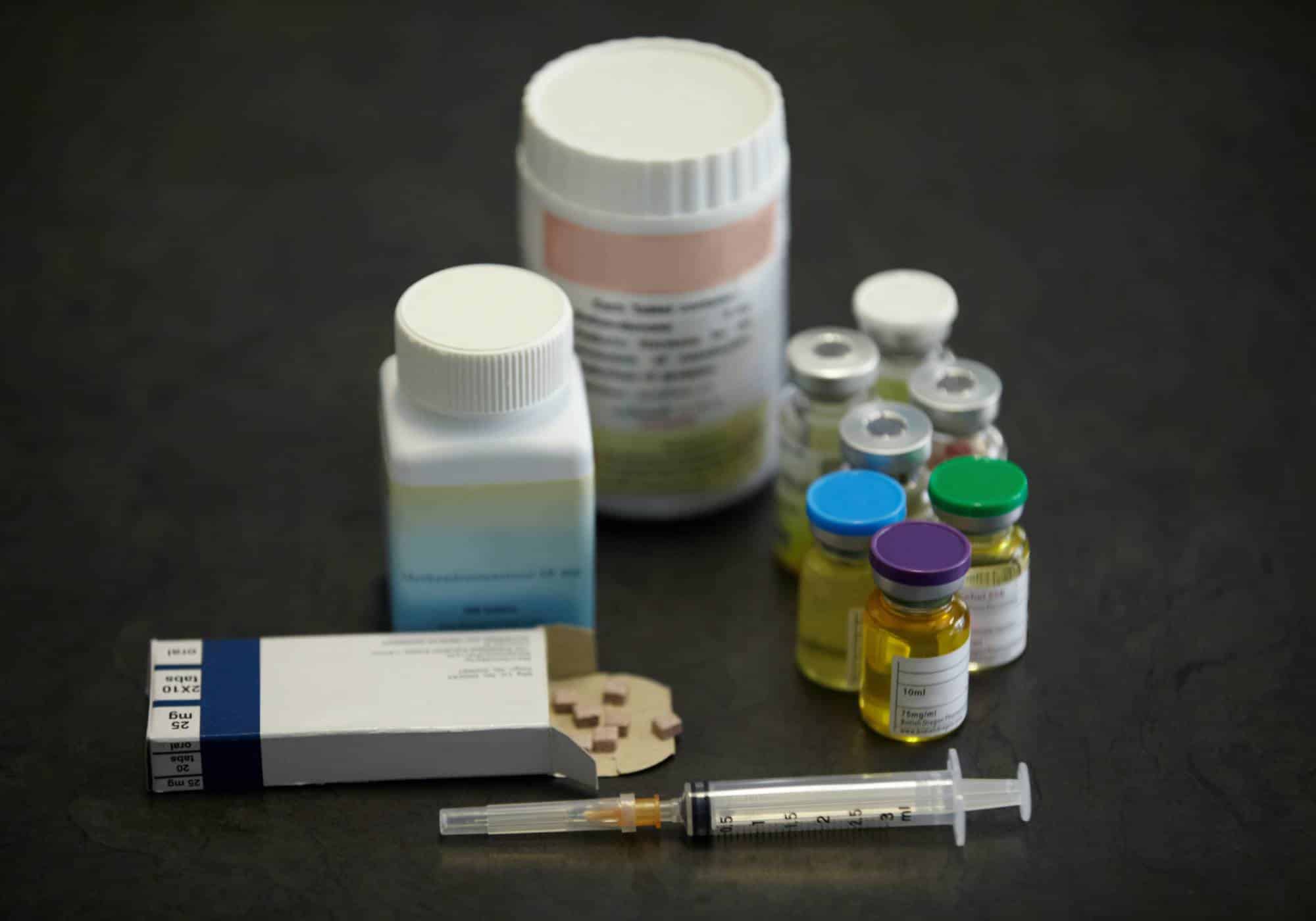Ativan, classified as a Schedule IV controlled substance, is known to lead to addiction and dependence along with various side effects. Thankfully, effective treatment options for Ativan addiction are accessible. Addiction to Ativan (lorazepam) can occur even when taking it as prescribed. It’s crucial to be aware of the symptoms and signs of Ativan addiction to help someone you care about.
What is Ativan?
Ativan, also known as lorazepam, is a powerful benzodiazepine medication primarily used for anxiety relief. It effectively manages conditions such as panic disorders and seizures. Furthermore, lorazepam is employed for sedation before medical procedures, muscle relaxation, and alleviating symptoms associated with drug and alcohol withdrawal.
Is Ativan Addictive?
Yes, lorazepam, commonly known as Ativan, has a high potential for addiction. In 2020, approximately 4.8 million people aged 12 and older misused lorazepam along with other prescription benzodiazepines. That year, due to the significant risks associated with these drugs, the FDA implemented a boxed warning on Ativan and similar medications to emphasize the dangers of misuse, physical dependence, and addiction.
While not everyone who uses lorazepam will develop an addiction, misuse can lead to a substance use disorder. This condition is characterized by the compulsive use of lorazepam despite facing adverse consequences, including health issues or the inability to fulfill obligations at work, school, or home.
What is Ativan Addiction?
Ativan, a powerful benzodiazepine, carries a high risk of abuse and addiction, often referred to colloquially as “goofballs,” “heavenly blues,” or “stupefy.” Prolonged use of Ativan can lead to both physical and psychological dependency, influenced by factors like genetics and personal health history. Individuals with prior substance abuse problems or unresolved mental health issues are particularly vulnerable to developing an addiction to Ativan.
Ativan addiction can manifest through intense cravings and continued use despite the negative impact it may have on personal relationships, professional responsibilities, and overall well-being. Common problems include:
- Strained family relations
- Neglect of work or educational duties
- Engaging in risky behaviors
- Loss of interest in previously enjoyed activities
- Social withdrawal
- Financial difficulties
As tolerance develops, the need for higher doses to achieve the same effect grows, signaling a deepening dependency. Many individuals recognize the destructive pattern of their Ativan use and may wish to stop but find themselves unable due to challenging withdrawal symptoms. Effective recovery often requires a combination of rehab, therapeutic support, and medically assisted detox, tailored to help individuals safely and successfully break free from lorazepam addiction.
How Ativan Addiction Develops
Ativan addiction often begins unassumingly, usually with a prescription provided for legitimate medical reasons. Addiction involves a combination of physiological, psychological, and environmental factors that evolve over time, often starting as a way to cope with mental health issues or the stresses of daily life.
Here’s a typical progression of Ativan addiction:
- Prolonged Use: Initially, Ativan might be used within the guidelines of a prescription, but over time, users may develop a tolerance, necessitating higher doses to feel the same relief or effects.
- Psychological Dependence: As individuals continue using Ativan, they might start to feel they cannot cope or function without it, which signals the onset of psychological dependence.
- Escapism: Many start using Ativan to escape personal difficulties or stress, setting a foundation for reliance on the medication that can quickly lead to addiction.
Understanding these steps can help in recognizing the early signs of addiction and the need for intervention.

Signs and Symptoms of Ativan Addiction
When someone abuses Ativan, especially in high doses, there may be noticeable signs.
These signs of Ativan abuse include:
- Sedation
- Dizziness
- Weakness
- Unsteadiness
Dependency on Ativan often leads to withdrawal symptoms such as nausea and anxiety if a dose is missed or insufficient. Over time, users typically develop a tolerance, requiring larger doses to achieve the same effects, indicative of physical dependence. Psychological dependence is marked by intense cravings that disrupt daily responsibilities and relationships.
Behavioral Symptoms of Ativan Abuse
Behavior changes are key indicators of Ativan addiction.
Those struggling with addiction might:
- Withdraw from social interactions, preferring isolation.
- Resort to deceit or theft to sustain their drug use.
- Consume Ativan in amounts or frequencies beyond medical advice.
- Become consumed with obtaining and using Ativan, often going to great lengths to secure it.
- Conceal their behavior from friends and family.
- Show diminished interest in hobbies and activities they once enjoyed.
- Neglect educational, professional, or social commitments.
- Visit multiple doctors to obtain overlapping prescriptions, a practice known as doctor shopping.
- Encounter legal issues, often related to attempts to procure the drug.
- Frequently borrow money in unusual patterns or amounts.
These behaviors are troubling signs that Ativan use has escalated into a serious addiction, necessitating professional intervention and treatment.
Effects of Ativan on the Brain and Body
Ativan acts on the central nervous system, modifying brain chemistry and heightening the risk of addiction and long-term mental health issues. Prolonged use or misuse of Ativan can result in dependence, increased tolerance, and withdrawal symptoms upon cessation of the medication. Thus, it is vital to adhere strictly to medical prescriptions when using Ativan. Discontinuing Ativan without professional medical advice can be hazardous. Moreover, addiction to Ativan increases the risk of overdose, emphasizing the need for cautious and monitored use.
Dangers of Ativan Abuse
Ativan, known for its addictive potential, should only be taken under strict medical supervision and exactly as prescribed. Typically, Ativan is recommended for short-term management because of the risks of developing physical and psychological dependencies.
The most severe side effects from Ativan usually arise either from high dosage or when combined with other central nervous system depressants like alcohol or opioids.
The dangerous side effects of abusing Ativan include:
- Respiratory depression
- Over-sedation
- Seizures
- Tremors
- Memory issues
- Loss of consciousness
Prolonged use of Ativan may lead to lasting changes in brain function. Research indicates that long-term use of benzodiazepines may cause cognitive impairments. Although some individuals may see improvement in brain function after discontinuing benzodiazepines, full cognitive recovery is not guaranteed for everyone.
Identifying an Lorazepam Addiction
Identifying an addiction to Ativan, a commonly prescribed benzodiazepine, can be challenging. Ativan is sometimes used illegally, but it can also be misused by those who have a valid prescription. Often, this misuse occurs privately and might not be immediately apparent to others.
Physical dependence on Ativan can develop rapidly, even among those who follow their prescribed dosages. Signs of dependence, such as withdrawal symptoms like nausea and anxiety, can indicate that the body is accustomed to the drug. Individuals may also develop a tolerance, needing increasingly larger doses to feel the drug’s effects.
Psychological dependence is often marked by intense cravings, which can occur while still using the drug or after stopping use. A definitive sign of addiction is the continued use of Ativan despite it causing interpersonal or professional problems.
The Diagnostic and Statistical Manual of Mental Disorders (DSM) offers guidelines for diagnosing substance use disorders, including addiction to substances like Ativan. The DSM outlines 11 criteria to gauge the severity of a substance use disorder, ranging from mild to severe. Anyone suspecting they might have an Ativan addiction should seek evaluation from a professional to accurately diagnose and address their condition. If you or your one are showing any of these signs, don’t hesitate and call us today at 678-605-9725 or fill out our contact form to start your Ativan addiction treatment in Atlanta, GA today.
Risk Factors for Ativan Addiction
Lorazepam addiction can affect anyone, cutting across all age groups, genders, races, educational backgrounds, and social statuses. A high-achieving lawyer is just as susceptible to developing an addiction as someone facing significant life challenges. However, certain factors increase the likelihood of an individual developing an addiction to substances like Ativan:
- Early Recreational Drug Use: Individuals who start using recreational drugs before the age of 24 are at a higher risk.
- Family History: A genetic predisposition to substance abuse or mental health issues in the family can increase vulnerability.
- Existing Mental Health Conditions: People diagnosed with mental health disorders such as depression, anxiety, or eating disorders are more prone to addiction.
- Traumatic Experiences: Those who have experienced trauma, such as violence, sexual abuse, or the loss of a loved one, are also at greater risk.
Recognizing these risk factors can help in understanding and addressing the root causes of addiction, leading to more effective prevention and treatment strategies.

Risks of Mixing Ativan with Other Substances
Ativan is commonly misused with other substances to enhance its calming effects or to mitigate the effects of stimulants.
Frequently combined substances include:
- Cocaine: Users often take Ativan to soften the intense high of cocaine, helping to ease the comedown.
- Amphetamines: Similar to cocaine, amphetamines are stimulants, and Ativan is used to counterbalance their stimulating properties.
- Methadone: Some individuals mix Ativan with methadone to intensify the effects. This combination is particularly hazardous as both are CNS depressants, greatly increasing the risk of a potentially fatal overdose from respiratory depression.
- Alcohol: Alcohol and Ativan together create a rapidly intense sedation. This combination exacerbates CNS depression, potentially leading to severe over-sedation, respiratory failure, coma, or death.
Mixing Ativan with these or other drugs elevates the danger significantly, heightening the risk of life-threatening outcomes such as overdose. Symptoms from such combinations can include severe sedation leading to unconsciousness, coma, or even fatality.
Ativan Withdrawal
Individuals who have been prescribed Ativan and are looking to reduce their dosage might experience these symptoms, though typically not with the same intensity as those who have been misusing the drug in quantities above those prescribed. Most individuals will encounter some withdrawal symptoms after discontinuing benzodiazepines following extended use.
The intensity and duration of withdrawal symptoms can vary based on several factors, such as the duration of Ativan use, the dosage, the approach to tapering off the drug, overall mental and physical health, and concurrent use of other substances.
Withdrawing from Ativan can be a challenging process, acute Ativan withdrawal symptoms that may include:
- Anxiety and insomnia.
- Increased heart rate, blood pressure, fever, and sweating due to autonomic nervous system hyperactivity.
- Psychomotor agitation.
- Delirium and hallucinations.
- Seizures.
The process of overcoming Ativan dependence often involves gradually reducing the dosage, a method that tests both endurance and the ability to resist strong cravings. Abruptly stopping Ativan, known as going “cold turkey,” can be not only highly uncomfortable but also pose serious health risks.
Ativan Overdose
Overdosing on Ativan (lorazepam) and other benzodiazepines is a serious risk, particularly when these drugs are used in combination with other substances. Fatal overdoses from benzodiazepines alone are uncommon, but the danger increases significantly with polysubstance abuse, especially when mixed with opioids, alcohol, or other central nervous system (CNS) depressants.
Data from the Centers for Disease Control and Prevention (CDC) indicates that in the first half of 2020, nearly 93% of deaths involving benzodiazepines also included opioids, with approximately 67% involving illicitly manufactured fentanyls. The risk is heightened by the fact that benzodiazepines bought on the street may contain opioids such as fentanyl, unbeknownst to the user, increasing their potency and the risk of overdose.
Symptoms of Ativan Overdose
An overdose on benzodiazepines alone might primarily cause severe over-sedation, with symptoms including:
- Extreme drowsiness
- Profound lethargy
- Mental confusion
- Slurred speech
When Ativan is combined with opioids, alcohol, or other CNS depressants, the symptoms can be life-threatening, characterized by:
- Deep sedation or unconsciousness
- Impaired or absent muscle control
- Severely slowed, shallow, or halted breathing
- Potential for coma or death
These insights underscore the critical need for caution in the use of Ativan, particularly regarding its combination with other depressants, and highlight the importance of medical supervision and intervention in cases of suspected overdose.

Does Insurance Cover Ativan Addiction Treatment?
Most health insurance plans generally cover treatment for Ativan addiction, either in full or part, depending on the specifics of your policy. Coverage often extends to both inpatient and outpatient services, providing necessary support for recovery.
Ativan Addiction Treatment at Hope Harbor Wellness
Located in the serene suburbs of Atlanta, Hope Harbor Wellness is your ally in the fight against Ativan addiction in Atlanta. Our drug rehab center is dedicated to holistic recovery and are ideally situated to offer you the support you need.
Our compassionate outpatient program collaborates with top-tier medical Ativan detox facilities, ensuring a safe and effective detox process. Once free from addictive substances, you can seamlessly transition into one of our specialized outpatient treatment programs, designed to address substance use disorders:
- Outpatient Rehab: A flexible program tailored to fit into your daily life.
- PHP (Partial Hospitalization Program): Offers a structured yet non-residential approach to treatment.
- IOP (Intensive Outpatient Program): Provides more intensive care while allowing you to maintain daily responsibilities.
- Dual Diagnosis Treatment Program: Caters to those with co-occurring mental health disorders.
Our Ativan addiction treatment programs incorporate a variety of interventions:
- MAT (Medication-Assisted Treatment): Utilizes medications to ease withdrawal symptoms and cravings.
- Psychotherapy: Addresses underlying psychological aspects of addiction.
- Group Therapy: Offers peer support and shared learning experiences.
- Individual Counseling: Provides personalized guidance and support.
- Family Therapy: Helps heal and strengthen family relationships.
- Holistic Therapies: Focuses on overall well-being, including physical, emotional, and spiritual health.
- Aftercare: Ensures ongoing support post-treatment.
Embark on your journey from addiction to recovery with Hope Harbor Wellness. Trust in our dedicated team to guide you every step of the way. For more information or to start your journey, call our admissions team at 678-605-9725.












